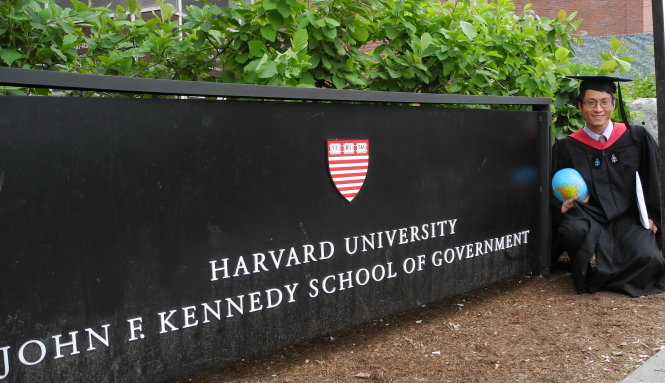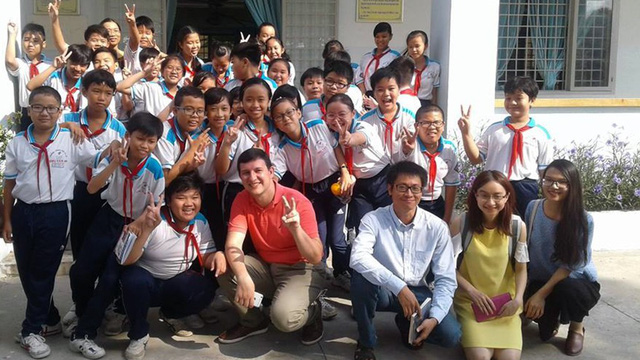Huynh Hanh Phuc is a Harvard graduate who quit his “million-dollar job” with ride hailing company Grab to establish “Teach for Vietnam,” the Vietnamese version “Teach for America.”
Established in 1989, “Teach for America” is a non-profit organization in the U.S. that encourages college graduates to teach in public schools in low income areas of the United States.
“I think the program is suitable for Vietnam. We have many good students but their situations don’t allow them to exploit their potential,” Phuc explained.
Since founding “Teach for Vietnam” in November 2015, Phuc and his partners have been travelling through southern provinces to promote the program.
In Tay Ninh, “Teach for Vietnam” is being tested in three districts and already has expansion plans in the works if the program is able to reach its goals.
The province’s People’s Committee approved a partnership with the program to allow Teach for Vietnam teachers to work within the area’s formal education system under a provided budget of VND 3.6 billion (US$158,590) for two school years, 2017-18 and 2018-19.
Additional grants totaling $200,000 were offered by the Teach for All Catalyst Fund and the U.S. Consulate General.
Along with 16 young volunteer teachers, Phuc also recruited a Harvard graduate and a Suffolk valedictorian from the U.S. to take part in the project.
“They are young but full of knowledge and enthusiasm,” said Nguyen Van Phuoc, Tay Ninh’s Deputy Minister of Education and Training.
“It’s too soon to tell, but I believe this is the door to a new and more effective way of learning that focuses on the students’ skills.”

Huynh Hanh Phuc at his graduation ceremony in Harvard.
To join the Teach for Vietnam team, applicants must complete a rigorous selection process, including applications, interviews, individual and group competence evaluations, and class trials.
“They have to be graduates, have good English, good communication skills, experience, and proven leadership abilities through in extracurricular activities or the projects they have taken part in,” Phuc added.
“They also need skills that involve logical thinking, the ability to work in a group, plan, organize, problem solve, analyze, and evaluate. They need to be able to inspire their students and believe in their development.
“Most important of all is their willingness to commit to ‘Teach for Vietnam’ and improve the education of Vietnamese children.”
The program also includes a two month training period, during which teachers study and practice with both foreign and Vietnamese experts in the network of Teach for All.
They are also given opportunities to participate in trial classes and receive feedback from trainers.
Besides class work, the program’s teachers are also responsible for organizing several extracurricular activities for their student such as singing, acting, and doing interviews in English.
“It takes four hours to prepare a 40 minute section,” said Dinh Thi Huyen Trang, a 26-year-old teacher participating in the “Teach for Vietnam” program in Tay Ninh.
Phuc emphasized that importance of finding ways to support and develop teachers as well as attract more graduates to teach in remote areas.



